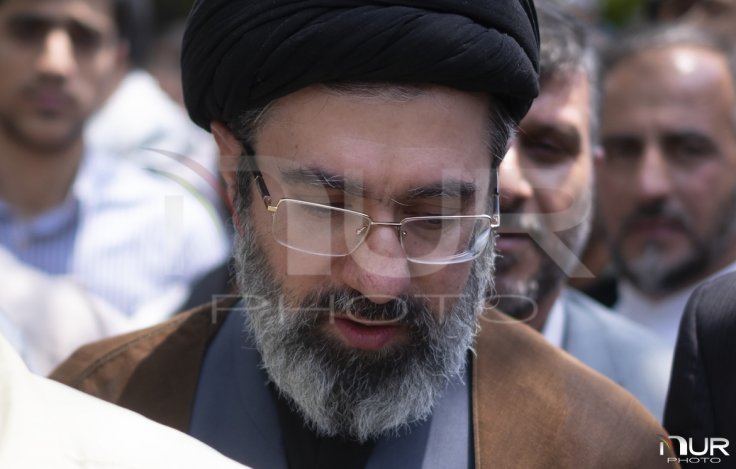Tehran has reportedly decided on Mojtaba Khamenei, the second son of Iran's Supreme Leader Ali Khamenei, as his successor. The 85-year-old leader, facing health issues, may step down during his lifetime. Israeli media outlet Ynetnews, citing Iran International, reported this development.

Secretive Assembly Meeting Confirms Mojtaba's Appointment
On September 26, Iran's 60-member Assembly of Experts gathered at Khamenei's request. The meeting focused on the highly sensitive issue of succession. Despite dissent over both the choice and the process, the assembly unanimously approved Mojtaba's appointment.
Attendees were instructed to maintain strict confidentiality to prevent potential public unrest. Members were reportedly warned of severe consequences for leaking details of the meeting.
Mojtaba Khamenei: A Political Insider
Mojtaba Khamenei was born in 1969 in Mashhad and has emerged as a key player in Iran's political system. His role is compared to Ahmad Khomeini, the influential son of Iran's first Supreme Leader. Mojtaba's early years were shaped by his father's imprisonment during the 1970s under the Pahlavi regime. Following the 1979 Islamic Revolution, the family's prominence soared.
He later moved to Tehran and attended Alavi High School, an institution for elite families aligned with the regime. During the Iran-Iraq War, Mojtaba served in the armed forces, forming connections with future leaders in Iran's security apparatus, including IRGC figures Hossein Taeb and Hossein Nejat.
Path to Influence and Power
Mojtaba's influence expanded in 1989 when his father became Supreme Leader. He pursued religious studies in Qom, associating with prominent conservative figures like Ayatollah Mohammad-Taqi Mesbah Yazdi, a supporter of Iran's nuclear program. While Mojtaba is not a top-tier cleric, his education aligned him with powerful factions within Iran's religious establishment.
He gained political prominence in the 1990s, playing a crucial role in presidential elections. In 2005, he supported Mahmoud Ahmadinejad's ascent to the presidency and was instrumental in managing dissent during the 2009 Green Movement protests, reportedly through the Basij militia.
Financial and Media Influence
Mojtaba's reach extends beyond politics. He has access to vast financial resources and has been described as handling leadership responsibilities delegated by his father. He has also influenced Iran's state-run media, notably orchestrating the removal of IRIB's director in 2014.
His position in his father's office is second only to the Supreme Leader's chief representative. Observers believe Mojtaba's power could pave his way to becoming Supreme Leader. However, Iran's history of succession politics remains unpredictable. His late uncle, Ahmad Khomeini, was once seen as a potential leader but was ultimately sidelined.
Family Connections Strengthen Influence
Mojtaba is married to the daughter of Gholam Ali Haddad-Adel, a former Speaker of Parliament and a prominent political figure. Among Ali Khamenei's sons, Mojtaba is considered the most powerful, wielding significant political and financial influence. While his brothers are active in various roles, Mojtaba's strategic positioning within Iran's leadership structure makes him a central figure in the nation's future.
Implications for Iran's Leadership
The appointment of Mojtaba Khamenei has profound implications for Iran's political landscape. As a polarizing figure, his rise could consolidate power further within the Khamenei family. However, it also risks sparking unrest among factions opposed to dynastic succession. The secrecy surrounding his selection underscores the sensitivity of the issue, as the nation prepares for a pivotal shift in leadership.









